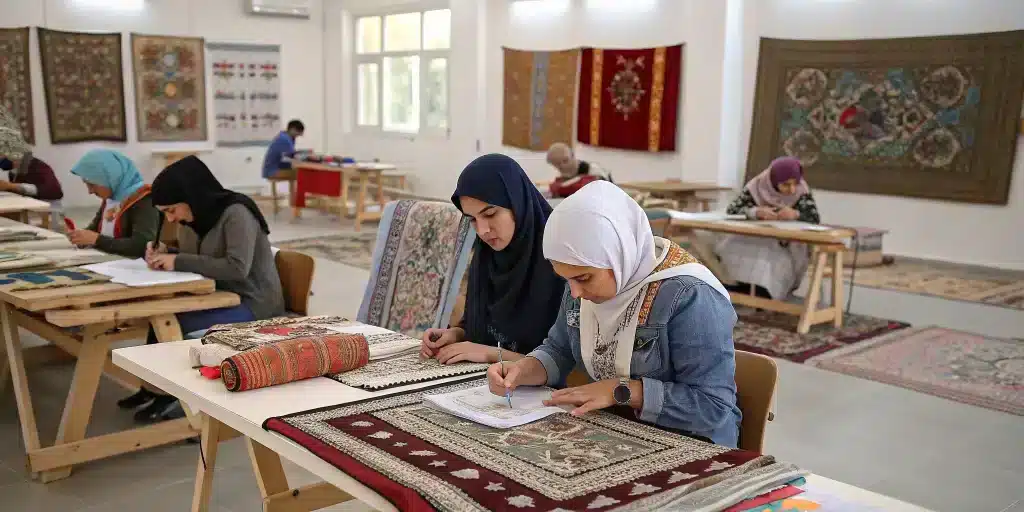Learning Traditional Turkish Arts as a Student in Türkiye
Overview of Programs
Traditional Turkish Arts Degrees
Universities in Türkiye provide a range of undergraduate and graduate programs focused specifically on traditional Turkish arts. These programs are designed to nurture both practical skills and theoretical understanding, enabling students to master techniques and contribute to the preservation and innovation within these crafts.
- Core Disciplines: The main areas covered include Ebru, Calligraphy, Ceramics, as well as other traditional crafts. Training typically combines hands-on workshops with art history and contemporary design modules. Universities, such as Aydin University, offer tailored programs that allow students to explore these areas in depth.
Undergraduate Studies
Most Turkish universities offer either two- or four-year programs in art studies, culminating in a bachelor’s degree upon completion. The curriculum often emphasizes both abstract and technical aspects of art, equipping students with creative and intellectual skills that are relevant to traditional arts. Institutions like Antalya Bilim University are prominent in offering such comprehensive art programs.
Graduate Studies
Master’s programs are aimed at developing advanced skills in research, critical interpretation, and artistic innovation within the framework of traditional Turkish arts. These programs emphasize independent study and original project creation. Graduate coursework encourages the reinterpretation of classical techniques for contemporary contexts, fostering new design approaches rooted in tradition, particularly at esteemed entities like Medipol University and Uskudar University.
Key Features of Studying Traditional Turkish Arts
- Practical Training: Students engage in workshops where they learn by doing—creating Ebru designs, practicing calligraphy, and working with ceramics under the supervision of expert instructors. Institutions such as Halic University prioritize experiential learning, making the educational process more effective.
- Cultural Immersion: Academic departments often facilitate access to historical collections, museums, and master artisans, granting students a deeper appreciation and contextual understanding of the arts. This kind of cultural immersion is a hallmark of programs at universities like Istinye University.
- Research and Innovation: Especially at the postgraduate level, students are encouraged to undertake research projects that explore the evolution of traditional Turkish arts or reinterpret classical forms for the modern era. Programs at Bilgi University are well-regarded for fostering such innovative research.
Career Prospects
Graduates from these programs often pursue careers as:
- Artists and designers specializing in traditional crafts
- Academics or researchers in art history and cultural studies
- Conservators or curators in museums and cultural institutions
- Instructors or workshop leaders in community and educational settings
Conclusion
Studying traditional Turkish arts in Türkiye provides students with a unique combination of technical mastery, cultural immersion, and creative exploration. Whether focusing on Ebru, Calligraphy, Ceramics, or related disciplines, students benefit from experienced faculty, vibrant artistic communities, and access to Türkiye’s rich artistic heritage—all preparing them to both preserve and innovate within these time-honored art forms.
For those interested in exploring opportunities further, Study in Türkiye offers a wealth of resources and guidance to facilitate the educational journey.
Take the Next Step with Study in Turkiye
Explore further as you consider your educational journey in Türkiye. The path to mastering traditional arts begins here!

